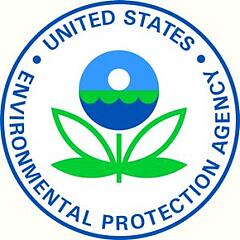June 13, 2012: The EPA has changed its EPCRA Section 312 Emergency and Hazardous Chemical Inventory Forms (Tier I and Tier II), adding new requirements and optional data elements. The Environmental Protection Agency has also made revisions to some current data elements in the chemical reporting section, to streamline the process of reporting and making it easier for facilities, states, and local officials to abide by reporting requirements.

Its final ruling has the EPA adding new mandatory data elements to the Tier I and II forms as follows (an update from the EPA's Superfund, TRI, EPCRA, RMP, and Oil Information Center):
The facility's latitude and longitude; identification numbers assigned under the TRI program and risk management program; whether the facility is manned or unmanned; the maximum number of occupants present at the facility at any one time; whether the facility is subject to EPCRA Section 302 and the Clean Air Act Section 112(r) risk management program; contact information for the individual responsible for completing the forms; emergency coordinator contact information for facilities subject to EPCRA Section 302; and e-mail addresses for the owner or operator and emergency contact. The rule also revised the range codes on the forms for the maximum amount and the average daily amount of the hazardous chemical at the facility and added optional data elements for the facility phone number and parent company contact information.
The changes also include items specific to the Tier II forms, with different data fields added to enable reports on pure chemicals and mixtures. In addition, facilities will be required to provide detailed descriptions of storage types and conditions, rather than previously-mandated codes. Revisions also include the new ability of facilities to report additional state or local requirements, or to voluntarily report hazardous chemicals lower than the current reporting thresholds.
This rule will become effective January 1, 2014. Facilities are required to comply with new regulations starting with reporting year 2013, and due March 1, 2014.
Additional information can be found at the EPA's website: www.epa.gov/emergencies/content/epcra

Its final ruling has the EPA adding new mandatory data elements to the Tier I and II forms as follows (an update from the EPA's Superfund, TRI, EPCRA, RMP, and Oil Information Center):
The facility's latitude and longitude; identification numbers assigned under the TRI program and risk management program; whether the facility is manned or unmanned; the maximum number of occupants present at the facility at any one time; whether the facility is subject to EPCRA Section 302 and the Clean Air Act Section 112(r) risk management program; contact information for the individual responsible for completing the forms; emergency coordinator contact information for facilities subject to EPCRA Section 302; and e-mail addresses for the owner or operator and emergency contact. The rule also revised the range codes on the forms for the maximum amount and the average daily amount of the hazardous chemical at the facility and added optional data elements for the facility phone number and parent company contact information.
The changes also include items specific to the Tier II forms, with different data fields added to enable reports on pure chemicals and mixtures. In addition, facilities will be required to provide detailed descriptions of storage types and conditions, rather than previously-mandated codes. Revisions also include the new ability of facilities to report additional state or local requirements, or to voluntarily report hazardous chemicals lower than the current reporting thresholds.
This rule will become effective January 1, 2014. Facilities are required to comply with new regulations starting with reporting year 2013, and due March 1, 2014.
Additional information can be found at the EPA's website: www.epa.gov/emergencies/content/epcra


